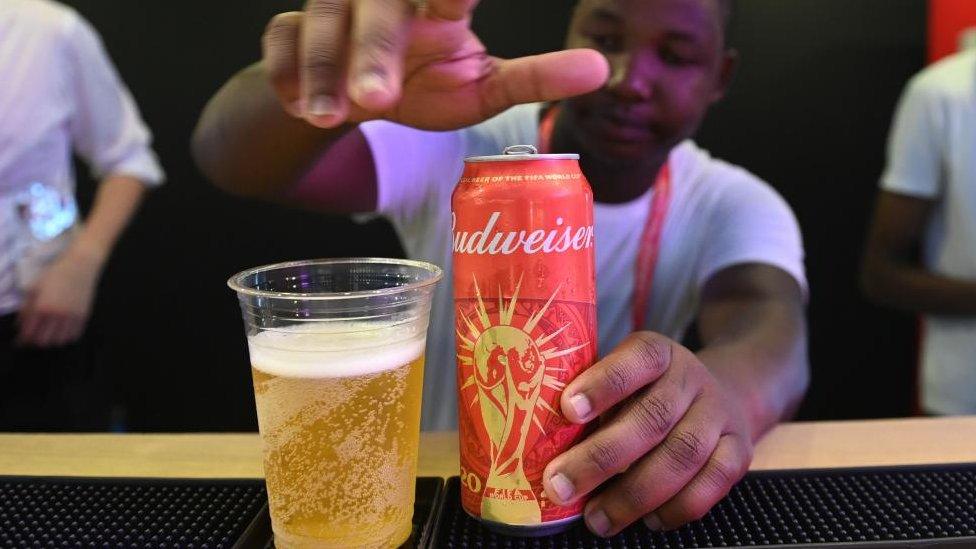World Cup stadium alcohol ban emblematic of contradictions
- Published

Alcohol being served at the media centre in Doha on Friday. In a now-deleted tweet, Budweiser reacted to the stadium ban by saying: "Well, this is awkward"
The last-minute alcohol ban for stadiums, announced by Fifa on Friday, is emblematic of the contradictions at the heart of this World Cup.
Qatar is trying to strike a balance between delivering a successful tournament that is enjoyable for the fans, and reassuring its Muslim population they have not compromised on religious rules and practices.
But the last-minute reversal has caused confusion and concern. It also raised questions about the timing of the decision - and what else might change.
When Qatar bid to host the World Cup, it knew - as did the rest of the world - that it was an unlikely candidate.
And, as a small, very rich Muslim nation with a strict way of living - and big ambitions to be a serious broker in the sporting world - it has a lot to prove.
But controversial and expensive as it all was, building the stadiums could have been the more straightforward part - compared to getting the fans safely to and from the venues, while ensuring they enjoy the football and the culture.
"I'm actually worried," a friend in Qatar told me. "We haven't had anything like this before. Not that many people. All here at once going to the venues. I worry what that will be like."
A price list at a fan zone, where alcohol will be served - 50 Qatari rial is equal to Ā£11.50, or $13.70
If you're a football supporter who has travelled to Doha at great expense, you'd be forgiven for not knowing exactly what to expect. It's a different picture for Qatari citizens, who feel a national sense of pride at hosting the World Cup.
This alcohol sale ban will be seen as the leadership staying true to the Muslim rules that the vast majority here abide by.
But there are also questions about why Fifa was unable to demand that Qatar stick to the plan, and about consistency. For the 2014 World Cup, Fifa made Brazil change its laws on the sale of alcohol at matches.
Drinking is not the main reason fans have travelled here - but it is part of the football culture for many.
It's also symbolic of the fine line Qatar is walking: presenting itself on one of the world's biggest of stages as an outward-facing, welcoming country while maintaining its cultural, religious and conservative integrity.
More on the World Cup
Rio Ferdinand, Ashley Williams, Gabby Logan & Jermaine Jenas give World Cup predictions
Related topics
- Published18 November 2022